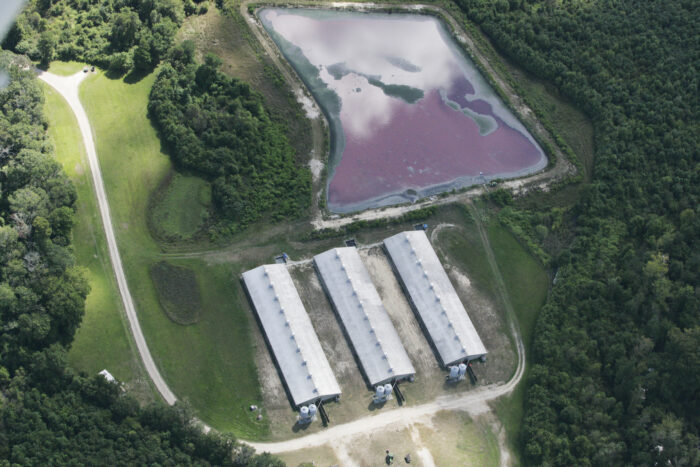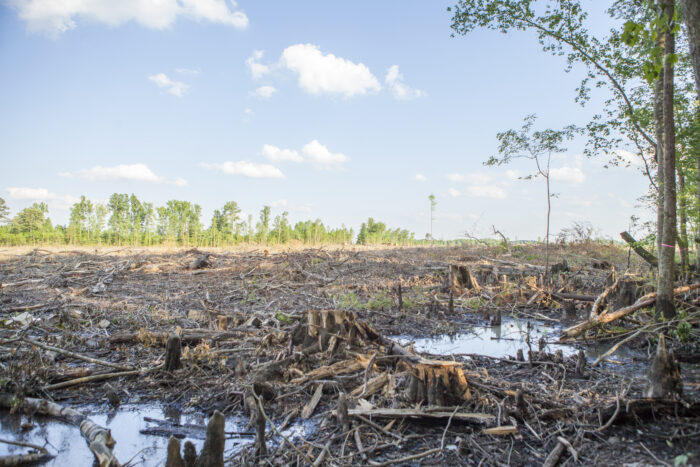Solutions start in North Carolina
SELC is one of the most effective environmental organizations in the South. For 37 years, our place-based approach has made us the fiercest watchdog for our region’s natural treasures and rich biodiversity. Because of this impressive track record, SELC can steer national policy on clean energy, clean water, public lands, and more. Today, we are accepting the mantle of transforming our region’s impact on climate change and addressing a history of environmental injustice. Largely thanks to SELC and our partners, we are reducing power plant emissions in North Carolina, protecting our precious forests, and helping ensure clean water and clean air for all, from the Blue Ridge Mountains to the Outer Banks.
Driving down fossil fuel power
To achieve Gov. Cooper’s carbon reduction goals, SELC petitioned state regulators to adopt a declining cap on power plant emissions and join Virginia and ten other states in the Regional Greenhouse Gas Initiative, a collaborative, cost-effective way to drive down fossil fuel power generation. With the approval of our petition in July, North Carolina has cleared the first major hurdle on the way to a program that would reduce power plant emissions 70 percent by 2030 and reach net zero emissions by 2050. We are working hard to ensure a hostile state legislature does not derail the program and, once final, we are prepared to defend it if necessary from legal challenges.

Addressing an unjust industrial hog waste system
SELC is fighting to clean up eastern North Carolina’s industrial hog facilities, which manage waste produced by over nine million swine using a primitive system that contaminates groundwater and surface water and plagues nearby residents, overwhelmingly people of color, with oppressive odors. Now Smithfield and Dominion Energy want to double down on this polluting system (and reap additional profit from it) by converting untreated swine waste to biogas. We are challenging state air permits for a proposed Duplin County processing facility, which would bring additional environmental harm to communities already carrying an unfair burden of pollution.
Removing barriers to solar power
SELC is taking on bad policies that keep many in North Carolina from installing rooftop solar. The city of Monroe, like many municipal utilities in the state, prevents customers from directly using energy they generate at home, completely eliminating the financial incentive to go solar. We asked federal regulators to take action against Monroe’s unlawful practice.

Burning forests in not a climate change solution
SELC is raising awareness that European biomass policies—enacted to address climate change—are actually making the problem worse. Cutting trees in the Southern U.S. to fuel power plants overseas increases carbon in the atmosphere over the next 40 years. Our social media campaign is pushing to reform British policies propping up the industry, and we are alerting the Biden administration to the dangers of supporting biomass. Closer to home, we filed a federal lawsuit challenging a British-owned pellet company’s violations impacting communities of color in Lumberton.
Protecting our drinking water
Building on our work stopping discharges of the industrial toxin GenX into the Cape Fear River, SELC is challenging an agreement between state regulators and the city of Greensboro that allows elevated discharges of another cancer-causing chemical (1,4-dioxane) into the Haw River. This unlawful agreement allows the contamination of drinking water for downstream communities and contributes to the pollution of the Cape Fear watershed, which has some of the highest levels of 1,4-dioxane in the country.
Defending our coast
The Corps of Engineers is irresponsibly proposing to jettison longstanding seasonal limitations on port dredging that protect endangered loggerhead turtles and other marine wildlife. SELC halted one attempt in Savannah, Georgia, but the Corps is pushing forward in Wilmington and Morehead City. In August, we filed a federal lawsuit challenging the agency’s illegal reversal of these effective, commonsense restrictions.
Championing national forests
The U.S. Forest Service released a draft of its vision for how one million acres of forests in North Carolina will be managed for the next 10-15 years. SELC has pushed the agency to steward the Nantahala-Pisgah primarily for recreation, water quality, and wildlife. We helped thousands advocate for protection of roadless areas and old growth forests, as well as additional wilderness designations. When the final plan is released in the coming months, we will be ready to respond.
Restoring core federal protections
For four years, SELC stood strong against an unprecedented assault on our nation’s environmental protections. The Biden administration has promised to restore safeguards under the Clean Water Act, the National Environmental Policy Act, and other critical laws. But with endless problems and competing priorities in D.C., it is up to us to keep our leaders on track and to protect vulnerable Southern resources on the ground while we help ensure the restoration of stronger federal standards.

Standing up for endangered species
SELC is a champion for the South’s unparalleled biodiversity. We have spent years battling in federal court to promote the recovery of the world’s only wild population of red wolves in eastern North Carolina. In January, we won a preliminary injunction ordering the government to resume releases of captive wolves, giving this species another chance. To better focus our expertise in this area, SELC launched a Wildlife Program with a goal of defending our region’s biodiversity in the face of expanding threats brought on by climate change.
